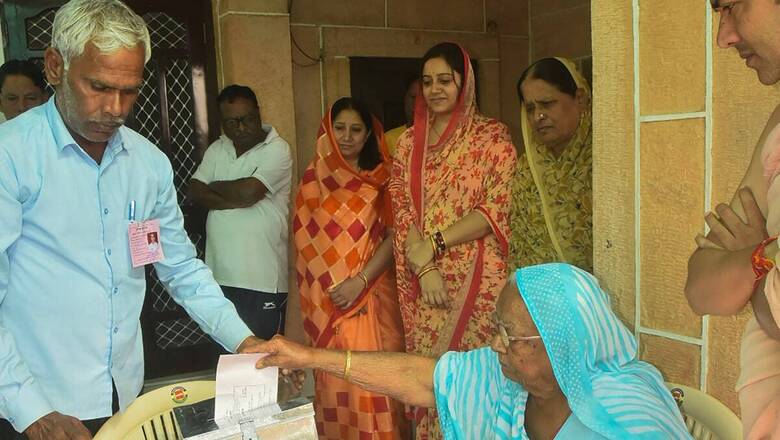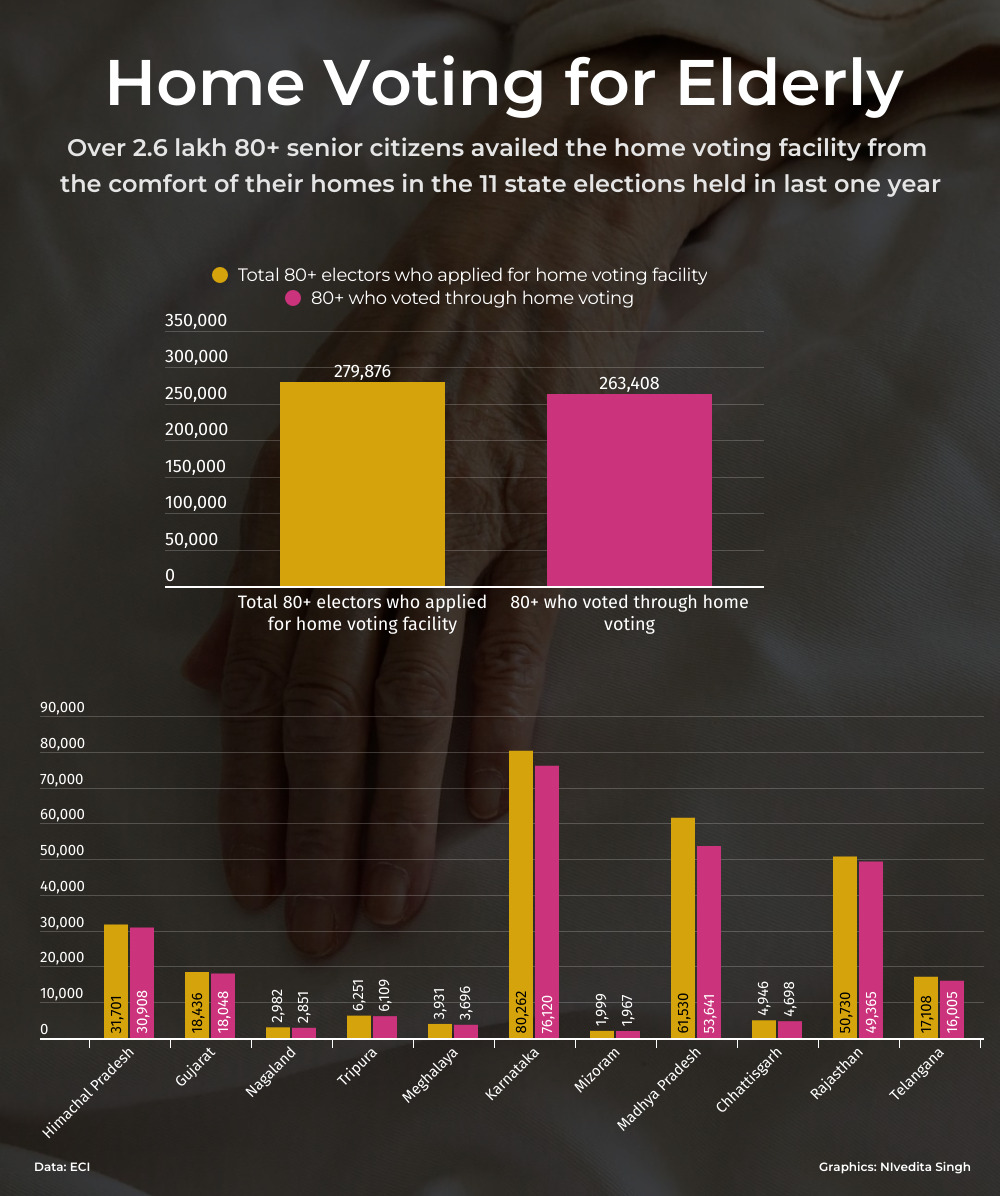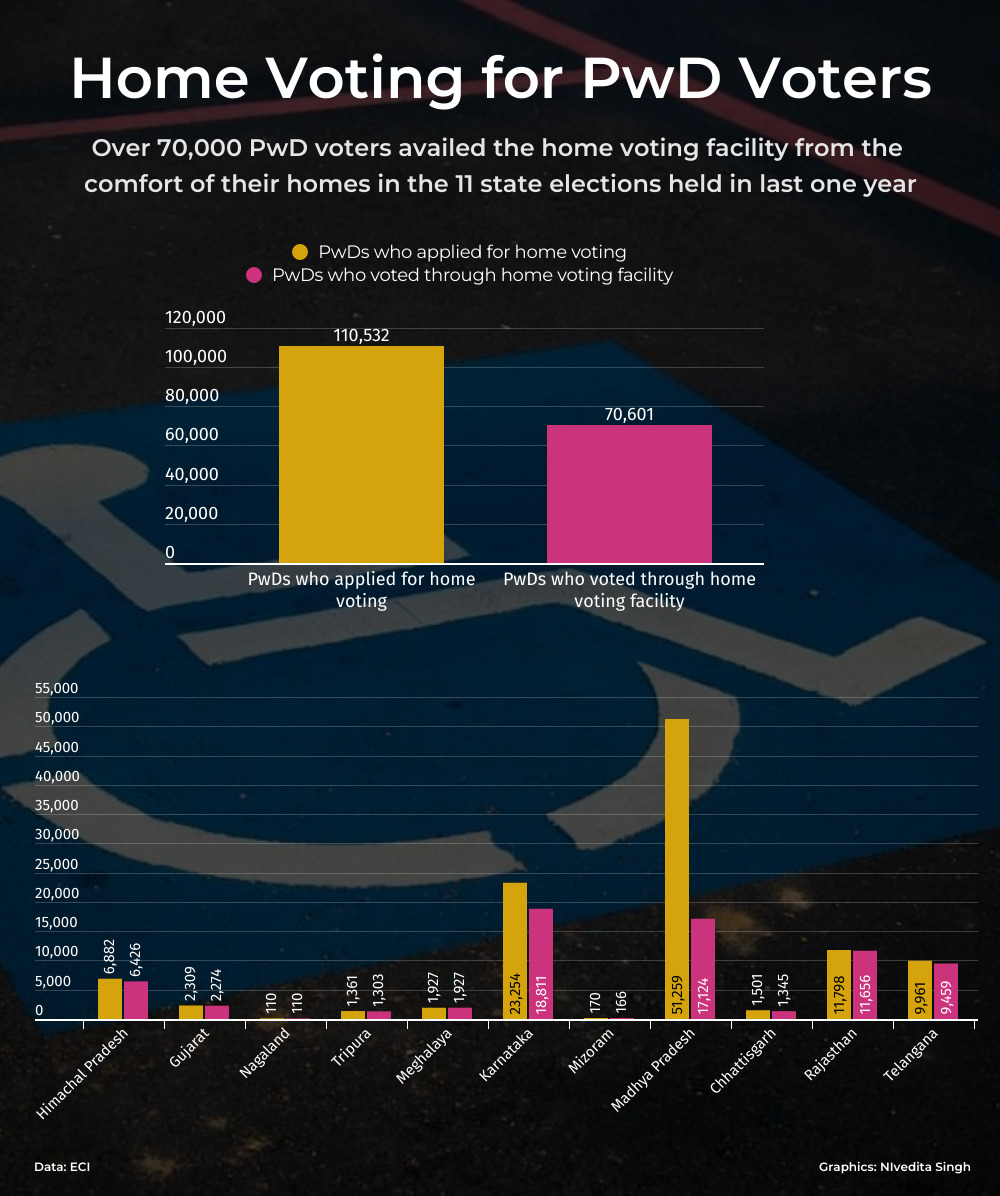
views
Counted among the ‘absentee voters’, at least 2.63 lakh elderly and more than 70,000 persons with disability got the opportunity to vote from home in 11 states that went to polls in the last one year.
Vote from home facility, available since 2020, was introduced for the first time in Chhattisgarh, Madhya Pradesh, Mizoram, Rajasthan, Telangana, Karnataka, Nagaland, Meghalaya, Tripura, Gujarat and Himachal Pradesh.
When Chief Election Commissioner Rajiv Kumar announced the schedule for the recently held Assembly elections in Chhattisgarh, Madhya Pradesh, Mizoram, Rajasthan and Telangana, he had said that the poll body has directed the Chief Electoral Officers of these states to take necessary steps for the dissemination of information and extending facilitation of voting from home to the elderly and persons with disabilities.
“The commission has always expressed gratitude to senior citizen voters, especially centenarian voters for their continuous contribution in the electoral process. The CEC personally wrote a letter to over 2.5 lakh centenarian voters to express the commission’s gratitude for their key role in strengthening democracy through participation,” a source said.
The commission has also endeavoured to bring the polling station to the doorstep of voters who face difficulties in coming to the booths.
Among these states, the highest voting among ‘absentee voters’ was registered in Karnataka in both the categories.
During the Karnataka assembly elections held in May, the turnout in the 80+ group stood at around 95% with 75,690 voting from their home.

In the case of ‘persons with disability’ voters, the turnout was around 97%.

Why Was Voting from Home Introduced
During the Bihar Assembly elections in 2020, the idea of ballot voting for a section of voters during the coronavirus pandemic was introduced. This continued for other states as well that went to polls in early 2021 when the virus was spreading. It has been used since then in all elections. The facility not only eases the voting process for these groups but also ensures their participation in the elections.
How Home Voting Works
First, voters in these categories have to make an application to the Returning Officer (RO) of the constituency concerned via Form 12D. This application should be submitted within five days of the date of notification of elections.
Block Level Officers (BLO) are tasked with the duty of visiting the houses of ‘absentee voters’ and delivering Form 12D. If these voters wish to opt for ballot voting, the BLO collects the filled-in Form 12D and deposits it with the Returning Officer.
It is also important to note that this facility is optional and does not involve any postal department activity for mailing arrangement. Rather, a polling team of two polling officials along with a videographer and security visits the voter’s house with a voting compartment and gets the elector to vote on the postal ballot maintaining complete secrecy of vote.
To ensure transparency, the list of all the voters opting for home voting is shared with the contesting candidates of recognised political parties in printed hardcopy.
Not just a list but the candidates are also given the schedule of voting and the route chart of the polling parties so that they can send their representatives to witness the polling procedure.
After the voting, the ballots are stored securely with the RO. Counting of these votes is done along with other votes in postal ballots or EVMs.
















Comments
0 comment